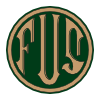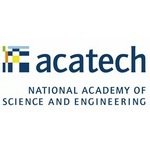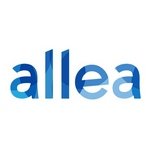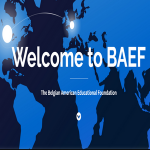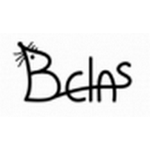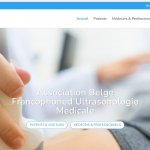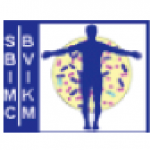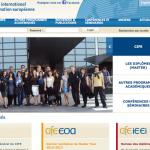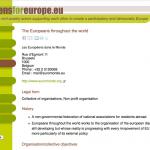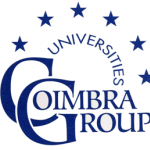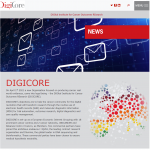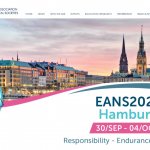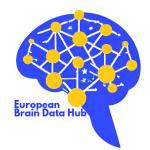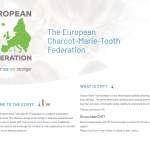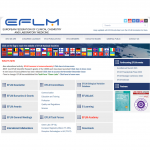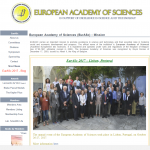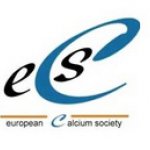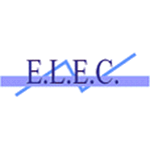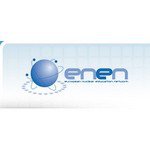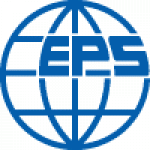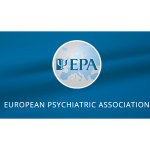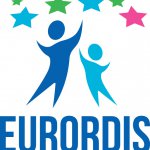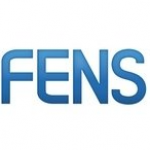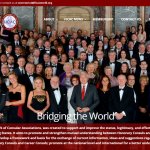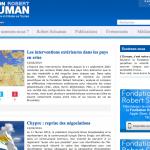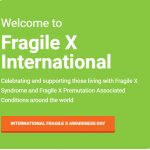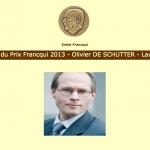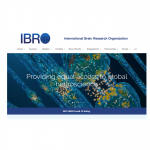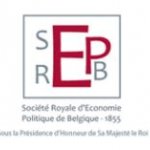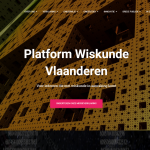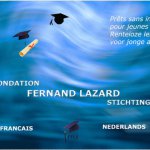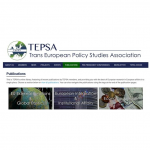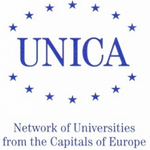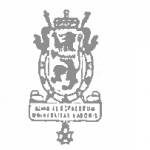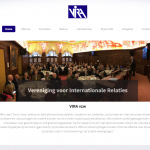In het kader van haar doelstelling, het bevorderen van de ontmoeting tussen Belgische academici onderling en met buitenlands academici, stelt de Universitaire Stichting in haar gebouwen kantoren ter beschikking van nationale en internationale organisaties met academisch karakter. Hierna volgt een lijst van de aanwezige instellingen (voor meer info klik op de naam) met een link naar hun website (klik op de afbeelding).
Gastorganisaties die nog niet vermeld zijn, kunnen hun gegevens aan de Universitaire Stichting overmaken via dit online formulier. Gastorganisaties die reeds vermeld zijn, maar aanpassingen aan de vermelding willen aanbrengen, gebruiken dit formulier.
acatech – The National Academy of Science and Engineering in Germany has a mandate from the Federal Government and the Länder to provide expert knowledge to policymakers. It offers effective structures for the science-based discussion of strategic technology issues. Experts from science, industry and civil society develop evidence-based proposals to support public and policy debate. acatech addresses, among others, topics such as AI, Climate and Environmental Protection, Data Spaces, Life and Health Sciences, Security, Strategic Sovereignty, and Sustainable Mobility. Additionally, acatech represents Germany’s technological sciences at the European umbrella organisation Euro-CASE and its global counterpart CAETS.
ALLEA is de Europese Federatie van Academies van Wetenschappen en Geesteswetenschappen en vertegenwoordigt meer dan 50 academies uit meer dan 40 EU- en niet-EU-landen . Sinds ALLEA’s oprichting in 1994 spreekt de organisatie namens zijn leden op het Europese en internationale toneel, bevordert wetenschap als een mondiaal collectief goed, en stimuleert wetenschappelijke samenwerking over grenzen en disciplines heen.
Academies zijn zelfbesturende organisaties van vooraanstaande wetenschappers uit alle wetenschappelijke disciplines. Zij beschikken over een uniek potentieel van intellectuele uitmuntendheid, ervaring en multidisciplinaire kennis en zetten zich in voor de vooruitgang van wetenschap in Europa en de wereld. Meer informatie.
The Belgian American Educational Foundation Inc. is the leading independent philanthropy in the support of exchanging university students, scientists and scholars between the United States and Belgium.
BCLAS ASBL/VZW is a scientific organization for the stimulation and development of the ethical care and use of laboratory animals.
De Belgian Brain Council vertegenwoordigt hersenonderzoekers, patiënten organisaties, clinici en wetenschappers op nationale niveau and wil een spreekbuis zijn voor mensen met een hersenaandoening.
Het Belgisch Genootschap voor Internationaal Recht werd in april 1977 opgericht als een internationale vereniging zonder winstoogmerk. Volgens haar statuten heeft het Genootschap tot doel om in een geest van wetenschappelijke objectiviteit, bij te dragen tot de vooruitgang van het internationaal recht en een permanent contact te onderhouden tussen allen die in België en in het buitenland belangstelling voor deze rechtstak betonen. Het Genootschap telt momenteel meer dan 70, zowel Belgische als buitenlandse, leden. Onze leden zijn hoogleraar, onderzoeker, doctorandus of practicus, actief – in België of in het buitenland – op het gebied van het internationaal publiek- of privaatrecht.
Wetenschappelijke Vereniging voor Echografie in Gynaecologie en Verloskunde
De vereniging richt zich op echografische, verloskundige en gynaecologische diagnostiek.
De Belgische Vereniging voor Infectiologie en Klinische Microbiologie (BVIKM) is opgericht in 1991, maar vindt haar oorsprong in een aantal formele en informele ontmoetingen tussen Belgische microbiologen en clinici en andere professionelen uit de gezondheidszorg met een bijzondere interesse voor en actief in de wereld van de infectieziekten en de anti-infectieuze therapie.
De doelstellingen van de vereniging zijn beschreven in dit document.
Les activités du CIFE comprennent l'étude, l'enseignement, la formation et la recherche sur les problèmes de l'unification européenne et mondiale, le fédéralisme, le régionalisme et les transformations des structures de la société contemporaine, selon une prospective fédéraliste. Le CIFE bénéficie du soutien de l'Union européenne, de plusieurs organisations internationales, de gouvernements nationaux, de collectivités locales, ainsi que de fondations privées et d'entreprises.
Promote international collaboration between the associations of nationals residing abroad and foster development of such associations.Advance the study and knowledge in the widest sense of the rights and duties of the Europeans abroad and to act towards all authorities as their spokesman and defender.Perform studies and joint activities in the spirit of the European Union, and disseminate information.Contribute to international life and bring together the people.
The Coimbra Group was founded in 1985 and formally constituted by Charter in 1987. It is an association of long-established European multidisciplinary universities of high international standard. The Coimbra Group is committed to creating special academic and cultural ties in order to promote, for the benefit of its members, internationalisation, academic collaboration, excellence in learning and research, and service to society. It is also the purpose of the Group to influence European educational policy and to develop best practice through mutual exchange of experience.
The Digital Institute for Cancer Outcome Research (DIGICORE) is a European Economic Interest Grouping established in Brussels on April 1st 2021.
Today, the Grouping sees the participation of 30 prominent cancer centres from 17 countries, and 2 national cancer networks. Two industrial partners take part to the network: IQVIA, the worldwide leading company of clinical research and Illumina, the global leader in DNA sequencing and bioinformatics.
DIGICORE is a pan-European research network built to accelerate the implementation of precision oncology in Europe. It promotes and equips cancer centres in their use of routine electronic health records (EHR) and molecular diagnostic information (MDX) for trial automation, real world outcomes research, digital diagnostics and care quality management.
De Europese Vereniging van Neurochirurgische Verenigingen (EANS) is zowel een onafhankelijke federatie van Europese nationale neurochirurgische verenigingen als een snelgroeiende vereniging van individuele neurochirurgen uit Europa en de rest van de wereld. De EANS werd in 1971 opgericht door afgevaardigden van 18 nationale verenigingen en telt vandaag 42 Europese nationale lidverenigingen, 3 aangesloten lidverenigingen en meer dan 2500 individuele leden. De organisatie heeft als doel haar leden in staat te stellen de zorg voor hun patiënten te verbeteren door de uitwisseling van wetenschappelijke informatie op het hoogste niveau te vergemakkelijken. Ter verwezenlijking van dit doel organiseert de EANS een breed scala aan bijeenkomsten, symposia en opleidingsprogramma’s waaronder het Europees Congres voor Neurochirurgie (European Congress of Neurosurgery) en de zeer gewaardeerde Europese Opleidingscursussen in de Neurochirurgie (European Training Courses in Neurosurgery).
The European Brain Council (EBC) is a network of key players in the “Brain Area”, with a membership encompassing scientific societies, patient organisations, professional societies and industry partners. A non-profit organisation based in Brussels, its main mission is to promote brain research with the ultimate goal of improving the lives of the millions of Europeans living with brain conditions, mental and neurological alike. With the aim to speak with one voice, EBC stands as the platform to foster cooperation between its member organisations and other stakeholders, consistently promoting dialogue between scientists, industry and society.
De European Brain Data Hub (EBDH) is de eerste altruïstische Europese vereniging die zich toelegt op geestelijke gezondheid en hersengegevens. De EBDH bevordert het vrijwillige delen van gegevens om onderzoek, overheidsbeleid en gezondheidszorg te verbeteren.
De organisatie werd opgericht in het kader van de Data Governance Act en biedt een veilig Europees platform voor gegevensdeling, met als doel de vooruitgang in de gezondheidszorg te ondersteunen, in het bijzonder op het gebied van mentale en hersengezondheid.
De Europese CMT Federatie (ECMTF) is een internationale non-profit organisatie. Zij groepeert Europese nationale verenigingen welke ondersteuning geven aan mensen die getroffen zijn door de ziekte van Charcot-Marie-Tooth.
De Federatie moedigt communicatie en samenwerking tussen CMT-organisaties aan en bied hulp en begeleiding bij het creëren van een dergelijke organisatie in landen waar die momenteel niet bestaat.
Eén van de belangrijkste doelstellingen van de Federatie is het ondersteunen van onderzoeksprojecten voor een betaalbare en effectieve behandeling van CMT.
De European Federation of Catalysis Societies (EFCATS) is een internationale non-profitorganisatie (IVZW) van 25 nationale Europese katalyseverenigingen die wetenschappelijke activiteiten op het gebied van katalyse op transnationaal niveau faciliteert, coördineert en rationaliseert. EFCATS en de nationale katalyseverenigingen streven ernaar alle activiteiten op nationaal en transnationaal niveau in alle gebieden van katalyse wederzijds te versterken.
Volgens de statuten heeft EFCATS als doel haar leden organisatorische, technische en financiële ondersteuning te bieden door het bevorderen en coördineren van de deelname van haar partners aan activiteiten die gericht zijn op hun wetenschappelijke ontwikkeling, opleiding, onderzoeksfinancieringen, industriële contracten, technologieoverdracht, de oprichting van spin-offs, het ontwikkelen van faciliterende technologieën en oplossingen in de volledige waardeketen die nodig zijn om duurzaamheid op lange termijn en technologische ontwikkeling in Europa te bereiken in de katalysesector.
EFLM connects National Societies of Clinical Chemistry and Laboratory Medicine and creates a platform for all European “Specialists in Laboratory Medicine”. EFLM provides European leadership in Clinical Chemistry and Laboratory Medicine to national professional societies, the diagnostic industry and to governmental and non-governmental organisations in order to serve the public interest in health care.
L'objectif de l'Académie européenne des sciences ( EURASC ) est de promouvoir la recherche scientifique en Europe. Il tente de valoriser les collaborations fructueuses entre scientifiques, ingénieurs et pouvoirs publics ; renforcer les liens entre recherche fondamentale et appliquée, et entre chercheurs et utilisateurs ; et stimuler l’intérêt du public pour la science. Ses membres actuels, qui comptent environ 500 membres, comprennent les scientifiques les plus éminents, principalement d'Europe mais aussi du monde entier.
Eurodoc, de Europese Raad van Doctoraatskandidaten en Junior Onderzoekers, is een basisfederatie van 24 nationale verenigingen van beginnende onderzoekers (ECR's) uit 22 landen in heel Europa. Eurodoc werd opgericht in Girona (Spanje) op 02.02.2002. Sinds 2005 heeft Eurodoc zijn zetel in Brussel, België. Als vertegenwoordiger van promovendi en junioronderzoekers op Europees niveau werkt Eurodoc samen met alle belangrijke belanghebbenden in onderzoek, hoger onderwijs en innovatie in Europa.
De European Calcium Society (ECS) is een internationale vzw gesticht in 1997. Ze vormt in de wereld de grootste vereniging van onderzoekers in het calciumveld en heeft 250+ leden uit meer dan 30 landen (waarvan verschillende landen buiten Europa). Het doel van de ECS is om banden tussen de onderzoekers in het calciumveld te smeden en te versterken met special aandacht voor de jongere onderzoekers (bvb. door middel van reisbeurzen, kortingen op de lidmaatschappen en de deelname aan activiteiten, posterprijzen en sinds 2019 een eigen bestuursorgaan) en met maximaal respect voor de gelijkheid tussen man en vrouw. Om dit te bereiken organiseert de ECS o.a. zeer succesrijke internationale congressen en studiegroepen.
De European League for Economic Cooperation (ELEC) is een netwerk van Europese ondernemers van goede wil. Het doel is intellectuele druk uit te oefenen op de Europese besluitvormers om zo de economische integratie in Europa te bevorderen. ELEC handelt in volledige onafhankelijkheid van nationale of particuliere belangen, overheidsinstanties of pressiegroepen.
ENEN is een internationale vereniging zonder winstoogmerk. Het hoofddoel van ENEN is het behoud en de verdere ontwikkeling van expertise op nucleair gebied door hoger onderwijs en opleiding in Europa.
La Société européenne de physique (EPS) est une organisation créé en 1968 dont l'objectif est de promouvoir la physique en Europe. Aujourd'hui, l'EPS représente 42 sociétés nationales de physique et 130 000 chercheurs, dont des lauréats de prix Nobel et des physiciens de renom, qui défendent la recherche en physique et sa contribution au développement économique, technologique, social et culturel de l'Europe et des pays voisins. L'association contribue à l'avancement de la physique, en particulier par la promotion et l'implication des jeunes physiciens. Elle agit comme un forum de discussion sur des sujets scientifiques et politiques et, à ce titre, fournit les moyens appropriés pour agir au niveau européen.
Improving Psychiatry and Mental Health Care in Europe
With active individual members in as many as 88 countries and 44 National Psychiatric Association Members who represent more than 80,000 European psychiatrists, the European Psychiatric Association is the main association representing psychiatry in Europe. The EPA’s activities address the interests of psychiatrists in academia, research and practice throughout all stages of career development. The EPA deals with psychiatry and its related disciplines and focuses on the improvement of care for the mentally ill as well as on the development of professional excellence.
ERIC a.i.s.b.l., het European Research Institute of Catalysis, is een internationale vereniging zonder winstoogmerk, opgericht door 22 Europese universiteiten. De doelstellingen van ERIC zijn: de leden van de vereniging ondersteunen door als katalysator te fungeren voor gezamenlijk onderzoek en opleidings-/onderwijsactiviteiten, en ondersteuning te bieden bij projectbeheer, de bevordering van intellectuele-eigendomsrechten en internationale samenwerking; diensten verlenen aan chemische en energiebedrijven en in het algemeen aan de productiewereld, door expertise aan te bieden op het gebied van katalyse (van white papers tot specifieke technologiegedreven studies, benchmarking of IPR-bijstand en patentscouting), opleiding en andere diensten, waaronder het fungeren als enige interface voor activiteiten waarbij meerdere instellingen en competenties betrokken zijn.
EURORDIS-Rare Diseases Europe is a unique, non-profit alliance of over 900 rare disease patient organisations from more than 70 countries that work together to improve the lives of the 30 million people living with a rare disease in Europe.
By connecting patients, families and patient groups, as well as by bringing together all stakeholders and mobilising the rare disease community, EURORDIS strengthens the patient voice and shapes research, policies and patient services.
FABI (Koninklijke Federatie van Belgische Verenigingen van Ingenieurs) verenigt burgerlijk ingenieurs van de universiteiten van Brussel, Bergen, Luik, het Montefiore Instituut van Luik, de Koninklijke Militaire School, evenals bio-ingenieurs van de universiteiten van Brussel en Luik (Gembloux Agro-Bio Tech).
Opgericht in 1926, treedt ze op als woordvoerder van de ingenieurs bij de Franstalige academische, economische en politieke instellingen van het land en benadrukt de inzet en bijdrage van haar leden aan de technologische en maatschappelijke vooruitgang. Haar voornaamste taak is het bevorderen, verbeteren en aantrekkelijk maken van de ingenieursberoepen, het verzamelen en doorgeven van essentiële informatie aan ingenieurs en het aanmoedigen van uitwisselingen tussen schoolverenigingen en tussen alle ingenieurs.
Founded in 1998 at the first Forum of European Neuroscience, the Federation of European Neuroscience Societies (FENS) is the main organisation for neuroscience in Europe. FENS currently represents 44 European national and single discipline neuroscience societies with more than 20,000 member scientists from 33 European countries. FENS promotes neuroscience research to policy-makers, funding bodies and the general public, both regionally and internationally. Hence, FENS promotes excellence in neuroscience research and facilitates the exchange and networking between neuroscientists within the European Research Area and beyond.
The World Federation of Consuls (FICAC) - Fédération Internationale des Corps et Associations Consulaires AISBL - is an international body, founded in 1982, representing over 100 consular corps from every continent. Holding Special Consultative Status with the UN ECOSOC and recognized by major international organizations, FICAC promotes peace, strengthens consular practice, and fosters international cooperation through its global network guided by the motto "Bridging the World."
Fragile X International - FraXI - is an International Non-Profit Organization (INPO), founded by a network of 17 country family organisations, with a growing membership. FraXI is a conduit for countries to work together and an official entity for sharing of international knowledge and expertise on Fragile X Syndrome and Fragile X Premutation Associated Conditions, a rare disease but the first genetic hereditary cause of intellectual disability. FraXI aims to drive research, encourage international collaborations and contribute with a unified voice of lived experience from its international network.
The purpose of the Francqui Foundation is to encourage the prestige of disinterested fundamental research. It also provides Belgian scholars and scientists with indisputable moral support. The statutes clearly state that its objective is "to further the development of higher education and scientific research in Belgium". This implicitly means that interuniversity collaboration is also encouraged.
INLA (International Nuclear Law Association - Association Internationale du Droit Nucléaire/AIDN) werd begin de jaren zeventig opgericht om de samenwerking tussen specialisten in dit rechtsgebied te versterken. De statuten bepalen dat deze privé vereniging zonder winstoogmerk de studie van juridische kwesties die verband houden met het vreedzame gebruik van kernenergie, de uitwisseling van informatie tussen haar leden en wetenschappelijke samenwerking op internationaal niveau zal nastreven.
IBRO is the global association of neuroscience societies established in 1961 that aims to promote and support neuroscience around the world through training, education, research, outreach and engagement activities, and the publication of our two journals, Neuroscience and IBRO Neuroscience Reports. More than 90 international, regional and national scientific members constitute IBRO’s Governing Council which, together with the IBRO Executive Committee and five Regional Committees, address the needs and advance the work of individual scientists and research communities everywhere. In addition, IBRO has partnerships with like-minded scientific organizations to identify priorities and help bridge gaps in knowledge, investment and resources in the field of brain research.
De Koninklijke Vereniging voor Politieke Economie van België (SREPB) draagt bij tot de invloed en de vooruitgang van de economische wetenschap. Opgericht in 1855 en onder het erevoorzitterschap van Zijne Majesteit de Koning geplaatst, is zij een van de oudste economische verenigingen. Het organiseert conferenties en verspreidt informatie over verschillende activiteiten en publicaties die van belang zijn voor Belgische economen.
LifeMe vzw (LifeStyle as Medicine) heeft als doel het concept levensstijl als medicijn en levensstijlgeneeskunde te onderbouwen en te promoten. LifeMe werkt volgens de principes van evidence based medicine en best practice. We baseren ons op zeven pijlers: voeding, beweging, omgaan met stress, sociale steun, slaap, omgeving en zingeving.
Vertrekkend vanuit die principes is er ook aandacht voor veelbelovende innovatieve technieken en inzichten om de gezondheid en het welbevinden te bevorderen, in het bijzonder van personen met verhoogd gezondheidsrisico en/of chronische aandoeningen.
LUPUS EUROPE is de koepelorganisatie die nationale lupus-patiëntenverenigingen uit heel Europa samenbrengt. We willen onze nationale lidorganisaties ondersteunen en versterken, informatie met hen delen en betere, patiëntgerichte processen bevorderen — zowel binnen de gezondheidszorg als op politiek niveau. Sinds onze bescheiden beginjaren zijn we uitgegroeid tot een organisatie die de meeste Europese landen vertegenwoordigt, die op hun beurt meer dan 30.000 patiënten in hun ledenbestand vertegenwoordigen. LUPUS EUROPE wordt beschouwd als een gewaardeerde partner op medische congressen, binnen Europese gezondheidsorganisaties die strijden voor bredere patiëntenrechten, en in Europese initiatieven die gericht zijn op het verbeteren van de gezondheidszorg en het vaststellen van “zorgstandaarden” voor lupuspatiënten.
Het Nationaal Centrum voor Navorsingen in de Logica (NCNL/CNRL) werd gesticht op 21 mei 1955. Het genootschap beoogt de ontwikkeling en de coördinatie van het onderzoek in zowel de wijsgerige als de wiskundige logica, en dit in de verschillende Belgische universitaire instellingen.
The Organisation of European Cancer Institutes “OECI” was founded in Vienna in 1979 and remodelled in 2005 into OECI-EEIG, a European Economic Interest Grouping. Today, the OECI regroups 102 Members, which include some of the most prominent European Comprehensive Cancer Centres.
The OECI aim is to accelerate the application of multidisciplinary personalised care approaches, to reduce morbidity and to guarantee an equitable access to care to all cancer patients and supporting parallel initiatives outside the EU and in other continents.
This goal is being achieved by promoting and enhancing the concept of “comprehensiveness” and “multi-disciplinarity”, supporting quality in cancer care and dynamically working in crosscut expertise by involving the OECI Working Groups, the Members and promoting synergies with other cancer Organisations.
Panathlon International is een wereldwijde non-profitorganisatie die in 1951 in Venetië, Italië, is opgericht. De organisatie bevordert ethiek, fair play en menselijke waarden in de sport. Ze is officieel erkend door het Internationaal Olympisch Comité (IOC). Het motto, "Ludis Iungit", betekent "Verenigd door sport". Panathlon verdedigt de rechten van kinderen en jongeren in de sport en strijdt tegen doping, corruptie, discriminatie en geweld. De beweging stimuleert wetenschappelijk onderzoek, onderwijs en inclusie door middel van sport. Ze brengt atleten, opvoeders en sportleiders wereldwijd samen. Lokale Panathlon-clubs zijn actief in meer dan 30 landen. Panathlon is een ambassadeur met een krachtige stem voor integriteit en respect in de wereldwijde sport.
Platform Wiskunde Vlaanderen vzw stelt zich tot doel: het versterken, organiseren en stroomlijnen van de wiskunde in Vlaanderen, als belangrijk kennisgebied in de Vlaamse kennismaatschappij, in het bijzonder op het vlak van publiek bewustzijn, onderwijs, onderzoek en innovatie. Dit gebeurt door het gecoördineerd samenbrengen van de verschillende actoren binnen de Vlaamse, wiskundige gemeenschap; het ontwikkelen van gedeelde visies en gedragen standpunten met alle geledingen van de Vlaamse wiskundige gemeenschap; en informatieverstrekking, sensibilisering en campagnes om de beeldvorming over wiskunde te verbeteren. Daarnaast is Platform Wiskunde Vlaanderen een aanspreekpunt voor alles wat met wiskunde in Vlaanderen te maken heeft: zowel voor overheden, onderwijsactoren, de industrie, burgers en media.
RaDiOrg is de Belgische koepelvereniging voor mensen met een zeldzame ziekte. De organisatie telde eind 2024 90 lidverenigingen: 22 tweetalige, 40 Nederlandstalige en 28 Franstalige. Daarnaast zijn er meer dan 900 individuele leden met een ziekte waarvoor geen vereniging bestaat. RaDiOrg is de nationale alliantie van EURORDIS, de Europese koepelvereniging voor mensen met een zeldzame ziekte.
RaDiOrg bevordert het welzijn van personen met een zeldzame ziekte door:
1- Hun gemeenschappelijke belangen te behartigen.
2- Hen wegwijs te maken in het complexe landschap van zeldzame ziekten.
RaDiOrg streeft naar een wereld waarin alle patiënten met een zeldzame ziekte snel een correcte diagnose krijgen, optimale, aangepaste en globale zorg ontvangen, en op een inclusieve wijze deel uitmaken van de maatschappij.
SEII s'est donné pour mission de favoriser le rôle essentiel que jouent les ingénieurs dans le développement durable d'une « société du savoir ». Dans cette optique, la SEII , en tant que société savante, contribuera à la diffusion des connaissances et à leur fertilisation interdisciplinaire, tant au niveau national qu'européen, en organisant diverses manifestations telles que conférences, conférences et colloques, en participant à des manifestations similaires événements organisés par d'autres institutions et par la publication d'articles et d'informations pertinents.
Le SEII favorisera également, dans la mesure de ses moyens et en collaboration avec le milieu universitaire, la formation continue en génie .
De Stichting Fernand Lazard verstrekt renteloze leningen (tot 25.000 EUR) aan jonge academici om ze in het begin van hun beroepsleven te helpen hun installatiekosten of specialisatiejaar in het buitenland te financieren.
De Raad van Bestuur kan daarenboven uitzonderlijk kandidaten selecteren en hen een beurs toekennen.
Deadline : Jaarlijks 5 februari
De Trans European Policy Studies Association (TEPSA) is het eerste pan-Europese onderzoeksnetwerk. Het bestaat uit vooraanstaande onderzoeksinstituten op het terrein van Europese betrekkingen, in heel Europa, met een kantoor in Brussel. TEPSA's doel is het uitvoeren van hoogstaand onderzoek over Europese integratie, gebaseerd op de 'triple A' aanpak: "Analysis, Assessment and Advice" om de discussie aan te wakkeren over Europees beleid en politiek. Het netwerk werd opgericht in 1974, en heeft sindsdien haar lidmaatschap uitgebreid in navolging van de uitbreiding van de Europese Unie. Momenteel bestaat TEPSA uit 43 leden en geassocieerde leden gevestigd in 36 landen, zowel EU-lidstaten als andere Europese staten. TEPSA en haar leden leveren expertise over EU-beleid en -politiek en hebben uitgebreide ervaring in het organiseren en uitvoeren van Europa-breed onderzoek, trainingen en netwerken.
Onze drie waarden zijn : Transparantie, Integriteit en Verantwoordingsplicht.
Onze doelen zijn om publieke middelen te beschermen, de stroom van zwart geld te stoppen, integriteit in de politiek te waarborgen, integriteit in het bedrijfsleven te bevorderen, wetshandhaving en gerechtigheid na te streven, de burgerlijke ruimte voor verantwoording uit te breiden en de initiatiefgeest binnen de gemeenschap tegen corruptie te ontwikkelen.
We houden de machtigen en de corrupten ter verantwoording door de systemen en netwerken bloot te leggen die corruptie in de hand werken. We pleiten voor beleid en bouwen coalities om de status-quo te veranderen.
Onze visie van een wereld zonder corruptie is geen doel op zich. Het is een strijd voor sociale en economische rechtvaardigheid, mensenrechten, vrede en veiligheid.
UNICA is an institutional Network of Universities from the Capitals of Europe. It was founded in 1990, and it is currently made up of 54 universities from 41 capital cities of Europe, combining over 150.000 university staff and 1.500,000 students. UNICA aims at building on the specific profile of its Members to widen and strengthen international collaborations, engage academic leadership, and facilitate networking among academic communities through understanding and sharing between its Members throughout the European Higher Education and Research Areas. Its vision is to be a driving force in the development of the European Higher Education and Research Areas and empower its Member Universities to unlock their full potential, putting knowledge, research, and innovation at the service of the needs of our societies and of the coming generations.
De Europese Universiteit van het Werk (stichting, instelling van openbaar nut) heeft tot doel, met uitsluiting van enig winstoogmerk of ideologische of politieke motieven, het bevorderen van onderwijs, opleiding en sociaal-culturele en technisch - wetenschappelijke promotie.
De UET ondersteunt onderwijs en onderzoek vanuit het principe van de vrije ontwikkeling van het individu en zijn persoonlijke ontplooiing door middel van zijn creatieve vermogens; alleen vrijheid van geweten, intellectuele objectiviteit en de waarden van experimentele kennis leiden haar initiatieven en acties.
Gesticht in Brussel in 1963 biedt VIRA een forum waar beleids -en bedrijfsverantwoordelijken, academici en studenten, diplomaten en internationale ambtenaren, journalisten en cultuurdragers informatie en standpunten kunnen uitwisselen over internationale ontwikkelingen. Bijzondere aandacht gaat daarbij naar geopolitieke en Europese thema’s die aansluiten bij de actualiteit en die bovendien maatschappelijke relevantie vertonen. Als hoofdstad van België en Europa en zetel van tal van internationale instellingen beschikt Brussel over evidente troeven om geschikte personen op dit forum te verenigen. Ongeveer tien keer per jaar worden lunch-of avondcauserieën en paneldebatten georganiseerd met vnl. Nederlandstalige, maar soms ook Franstalige of Engelstalige sprekers van hoog niveau. Activiteiten kunnen in samenwerking met andere verenigingen plaats vinden.
World Complexity Science Academy (WCSA) is a research based policy focused think tank whose motto is “research determines policy, policy determines politics”. WCSA core is the understanding and analysis of geopolitical scenarios and the development of a highly viable toolkit for complex organizational and institutional design. Cosmopollitan complexity management , citizenship policies, cosntructivist design for complex organizations, global governance strategies , policy modelling, complex models of sustainability policies are some of the key areas in which WCSA is committed.
